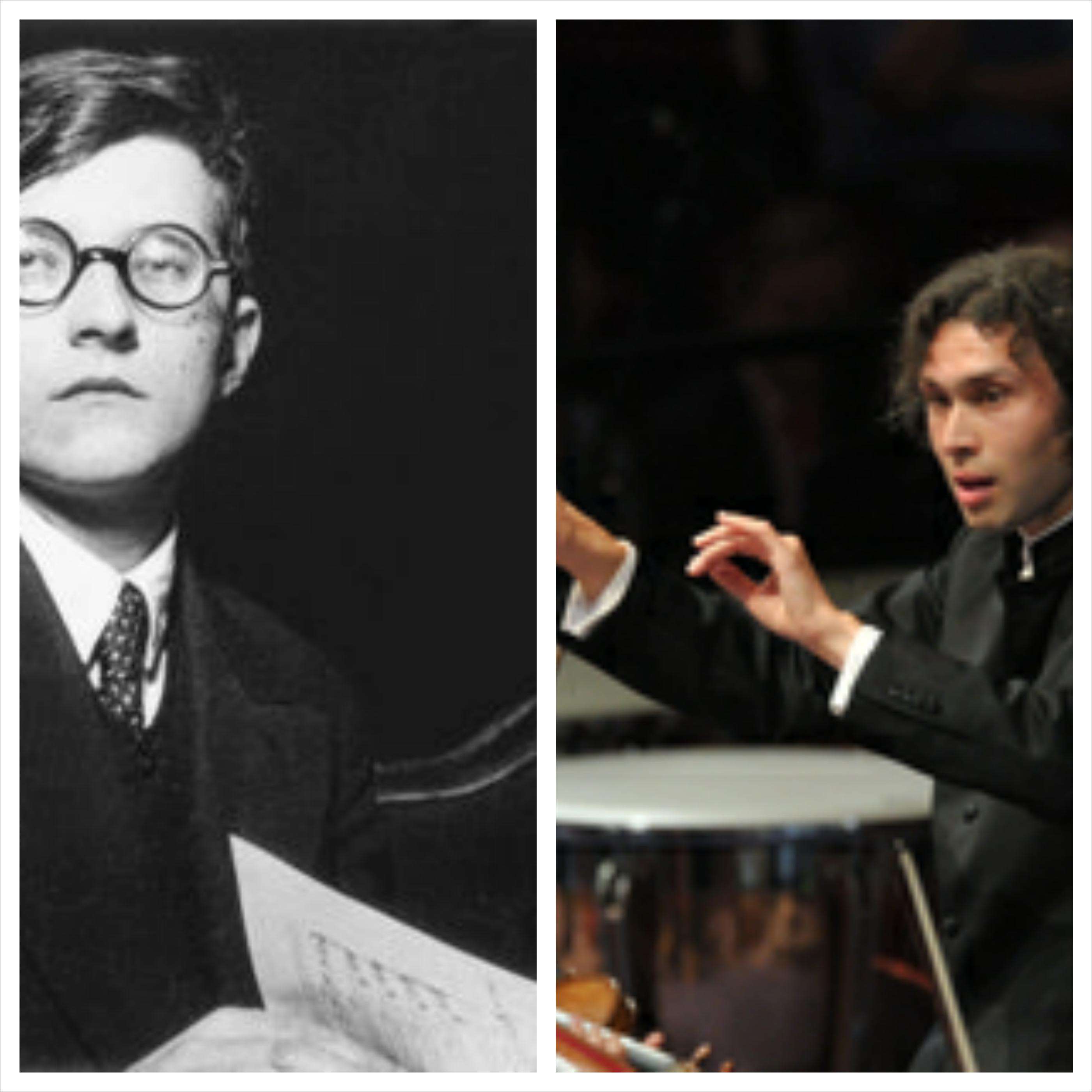|
Back
Portrait of Dmitri as a Young Dog New York
Alice Tully Hall, Lincoln Center
11/25/2013 -
Dmitri Shostakovich: The New Babylon, Opus 18 (excerpts) – Hypothetically Murdered Orchestral Suite, Opus 31a – Symphony No. 1 in F Minor, Opus 10
Juilliard Orchestra, Vladimir Jurowski (Conductor)

D.Shostakovich/V. Jurowski
(© Imagesbee.com/Chris Christodolou-IMG Artists)
About four decades before Andy Warhol, Dmitri Shostakovich discovered that the banal was beautiful. In two of Shostakovich’s three early works last night, written before he was 25 years old, Vladimiri Jurowski presented music which was anything but classical.
That other Russian enfant terrible, Sergei Prokofiev, wrote music that was dissonant, discordant, acidic. Shostakovich went in the other direction. His music was jazzy (well... white-guy jazzy), light, sarcastic. He was never averse to quoting (what he considered) lightweight composers, with irreverent harmonies, or folk tunes–the kind Stalin enjoyed–and giving them a coy little twist.
One of the works last night was for a 1929 film called New Babylon, a Soviet parody of decadent French communes. The three excerpts chosen by Mr. Jurowski were primarily clever, funny–and never played before like this. In fact, so difficult was the music at that time that the composer once confessed, “They never mastered the music and gave up. So I played the rest of it on the piano.”
Well, a truncated Juilliard Orchestra had no problem at all with it, and the dynamic acrobatic Mr. Jurowski demonstrated how to give it a lively excitement. Having heard the music before, and having watched the entire film on YouTube (see Coda), I felt it was just too perfect. Xylophones, trumpet calls, clarinet riffs were brilliantly played, all was in order. For those who hadn’t heard it before, this was a revelation of Shostakovich. But such exactitude extracted some of the fun. It was clever, not totally convincing.
The following music from Hypothetically Murdered was far more clever. Possibly since the whole orchestra was on stage, or perhaps because the eight excerpts were short and vividly illustrative.
Just as Broadway producer Billy Rose commissioned Stravinsky for a musical comedy, so Shostakovich took the money and ran with it in one of several musicals he wrote, still to be discovered.
Blessed were those in the audience who read James Keller’s exhaustive program notes, for excerpts were prurient, sacrilegious, with drunken angels, fornicating saints and crazy waitresses. One looks at the picture of even the young Shostakovich (see above), and he looks far too dour and serious for those mundane things. But make no mistake, this was music of the jazzy 20’s, and Shostakovich could parody, play, and dance with other revelers even in Lenin’s gray Soviet Union.
The usual line is that the most prodigious composers in history were Telemann and Villa-Lobos, but as we uncover more and more of Shostakovich’s work, including 36 film scores, his output could well rival theirs.
Those two works showed a wild, and partly mercenary Shostakovich, But even preceding them, his First Symphony showed his genius to the world. He wrote it at 19, as a graduation exercise. But it is still an ingenious, entertaining and frustrating work. We all understand his morbidity at the end of his life, when Stalin was metaphorically waiting to execute him. But why did this young genius already confuse the world with his emotional message?
Not that anybody worried about this last night. Maestro Jurowski, himself the scion and son of a famous conductor, grew up with this music. For the Juilliard players, he showed it as the muscular yearnings of a young man who already knew his Mahler, who was not afraid of being a Romantic (though not a measure was sentimentalized last night) and who allowed that enigmatic finale to be still filled with questions.
The Juilliard Orchestra might not have the color or wham-bang brilliance of other ensembles, especially Jurowski’s own groups. But since this Symphony is eons away from the Shostakovich frilly jazz, and because they played it with such youthful enthusiasm, it ended the evening with total joy.
CODA: To prepare for this, I listened to the full film of The New Babylon on YouTube, and was astounded at its modernism, its Eistensteinian photo tricks and eccentric cutting. Even more interesting, much of the Shostakovich went directly with the action. A solo kettledrum was reflected with a clown playing a drum.
In other words, like the best film composers up to the present day, Shostakovich took his job very seriously indeed. His last film music was for King Lear and that music was as deep as the symphonies. But even in his youngest years, this was a conductor true to himself in the most unusual and trying circumstances.
Harry Rolnick
|